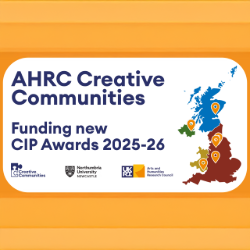-
Study
-
Undergraduate
- UCAS Clearing & Confirmation 2025
- Application Guides
- UCAS Exhibitions
- Extended Degrees
- School & College Outreach
- Information for Parents
-
Postgraduate
- Application Guide
- Postgraduate Research Degrees
- Flexible Learning
- Change Direction
- Register your Interest
-
Student Life
- Students' Union
- The Hub - Student Blog
- Accommodation
- Northumbria Sport
- Support for Students
-
Learning Experience
- Real-World Learning
- Research-enriched learning
- Graduate Futures
- The Business Clinic
- Study Abroad
-
-
International
International
Northumbria’s global footprint touches every continent across the world, through our global partnerships across 17 institutions in 10 countries, to our 277,000 strong alumni community and 150 recruitment partners – we prepare our students for the challenges of tomorrow. Discover more about how to join Northumbria’s global family or our partnerships.
View our Global Footprint-
Quick Links
- Course Search
- Undergraduate Study
- Postgraduate Study
- Information for Parents
- London Campus
- Northumbria Pathway
- Cost of Living
- Sign up for Information
-
International Students
- Information for International Students
- International Events
- Application Guide
- Entry Requirements and Education Country Agents
- Global Offices
- English Requirements
- English Language Centre
- International student support
- Cost of Living
-
International Fees and Funding
- International Undergraduate Fees
- International Undergraduate Funding
- International Masters Fees
- International Masters Funding
- International Postgraduate Research Fees
- International Postgraduate Research Funding
-
International Partners
- Agent and Representatives Network
- Global Partnerships
- Global Community
-
International Mobility
- Study Abroad
- Information for Incoming Exchange Students
-
-
Business
Business
The world is changing faster than ever before. The future is there to be won by organisations who find ways to turn today's possibilities into tomorrows competitive edge. In a connected world, collaboration can be the key to success.
More on our Business Services -
Research
Research
Northumbria is a research-rich, business-focused, professional university with a global reputation for academic quality. We conduct ground-breaking research that is responsive to the science & technology, health & well being, economic and social and arts & cultural needs for the communities
Discover more about our Research-
Quick Links
- Research Peaks of Excellence
- Academic Departments
- Research Staff
- Postgraduate Research Studentships
- Research Events
-
Research at Northumbria
- Interdisciplinary Research Themes
- Research Impact
- REF
- Partners and Collaborators
-
Support for Researchers
- Research and Innovation Services Staff
- Researcher Development and Training
- Ethics, Integrity, and Trusted Research
- University Library
- Vice Chancellors Fellows
-
Research Degrees
- Postgraduate Research Overview
- Doctoral Training Partnerships and Centres
- Academic Departments
-
Research Culture
- Research Culture
- Research Culture Action Plan
- Concordats and Commitments
-
-
About Us
-
About Northumbria
- Our Strategy
- Our Staff
- Our Schools
- Place and Partnerships
- Leadership & Governance
- University Services
- History of Northumbria
- Contact us
- Online Shop
-
-
Alumni
Alumni
Northumbria University is renowned for the calibre of its business-ready graduates. Our alumni network has over 250,000 graduates based in 178 countries worldwide in a range of sectors, our alumni are making a real impact on the world.
Our Alumni - Work For Us
What will I learn on this module?
‘Approaches to Storytelling’ asks you to consider what a story is and how storytelling works on screen. You will develop your knowledge and understanding of storytelling as well as the processes behind it. This module is an opportunity to test ideas out, experiment and take risks in the development of a detailed concept for a short film. Through a series of lectures, seminars and practical tasks this module introduces you to a range of narrative concepts and approaches both critical and creative. This module will introduce the fundamentals of storytelling and screenwriting, as well as historical development of screenwriting, scripted and non-scripted approaches to film making, representation and ethics in screenwriting. During the module, you will have the opportunity to develop practical skills including writing, production research, storyboarding. You will also acquire critical and reflective skills, as you respond to your own work and that of others. Furthermore, this module enables you to develop transferable personal skills to support your future study and employability.
How will I learn on this module?
You will learn via a variety of mechanisms. These include lectures, seminars and independent learning. Lectures will provide the contextual and theoretical information you need to understand the module’s themes and approaches. The lecturer will provide examples that will demonstrate how to apply relevant critical techniques, and to stimulate your engagement with the course material. Seminars will provide space for you to interrogate and discuss the ideas raised in the lectures, both with your peers and with the tutor. Seminars are oriented around discussion questions and activities to stimulate your engagement.
Outside of the taught sessions, you will be expected to engage with module-relevant reading in preparation for the sessions. An electronic reading list is supplied via the e-Learning Portal, which will guide you towards appropriate resources, although you are encouraged to explore the wider library catalogue to engage with additional sources too. During your independent working time, it is also expected that you will apply the ideas raised in the reading and the taught content to contemporary media examples beyond those cited in the lectures.
Where appropriate, additional materials will be supplied on the eLearning Portal. These independent activities will facilitate your development as you progress through the module, laying a foundation for your assessed work.
How will I be supported academically on this module?
You will be supported by the module lead; they will introduce the module at the start of the semester and offer advice and guidance throughout. Your learning is mapped out via documentation on Blackboard Ultra, the Northumbria University online electronic learning portal; this is accessible online on and off campus. The e-Learning Portal will include guidance notes and key dates to help you organise and plan your time. It will also include teaching materials, announcements and updates, and detailed information on assessment. You will have a university email that we contact you through. We support your learning by providing on-going feedback (Formative and Summative) through the range of teaching and learning approaches offered. We ask you to submit your work electronically, and we will supply feedback via Turnitin. You will be able to compare your feedback across modules so that you can assess your development as you progress through the programme.
Formative assessment is offered throughout the module, and summative assignments will receive written feedback within 20 working days of assignment submission. Every tutor has set weekly feedback and tutorial drop-in hours, wherein you can seek advice on your academic progress.
What will I be expected to read on this module?
All modules at Northumbria include a range of reading materials that students are expected to engage with. Online reading lists (provided after enrolment) give you access to your reading material for your modules. The Library works in partnership with your module tutors to ensure you have access to the material that you need.
What will I be expected to achieve?
Knowledge & Understanding:
• To demonstrate knowledge and understanding of storytelling concepts in narrative filmmaking.
• To identify and develop potential stories for the screen based on robust research practices.
Intellectual / Professional skills & abilities:
• To develop a professional production proposal that demonstrates an ability to turn an idea into an engaging story.
• To cultivate a critical engagement with storytelling concepts and approaches and a contextual awareness of your work in relation to film practice.
Personal Values Attributes (Global / Cultural awareness, Ethics, Curiosity) (PVA):
• To demonstrate an understanding of the scope and range of ethical considerations in narrative storytelling.
How will I be assessed?
Summative assessment will comprise of two components submitted at the end of the semester. Each component weighs 50% of the overall mark.
Component A) A creative portfolio including a
detailed concept for a narrative film.
Component B) a written reflective commentary (2000 words) on your learning that articulates an understanding of storytelling concepts and approaches and a contextual awareness of practice.
You will receive formative feedback from your peers and the module tutor during the seminars throughout the course, allowing you to apprehend how your critical skills are developing. You will receive a detailed commentary and a summative mark on your written work in accordance with the assessment criteria (supplied on the eLP). Under normal circumstances, you will receive written feedback on your summative submissions within 20 working days. The feedback will normally be supplied electronically as part of the ESAF process. This feedback will provide a detailed account of your skills, critical engagement and communicative ability, as well as supporting future learning by indicating areas for development. You can also request additional verbal feedback on your submissions by arranging a meeting with the module tutor.
Pre-requisite(s)
N/A
Co-requisite(s)
N/A
Module abstract
‘‘Approaches to Storytelling’ asks you to consider what a story is, and how storytelling works on screen. This module will introduce you to fundamentals of storytelling for the screen to help you develop a concept for a film through a creative portfolio of work. This module is an opportunity to test ideas out, experiment and take risks. During the module, you will be introduced to practical and creative skills including writing, production research and storyboarding. You will also acquire critical and reflective skills, as you respond to your own work and that of others. Furthermore, this module enables you to develop transferable personal skills to support your future study and employability.
Course info
UCAS Code P315
Credits 20
Level of Study Undergraduate
Mode of Study 3 years Full Time or 4 years with a placement (sandwich)/study abroad
Department Northumbria School of Design, Arts and Creative Industries, Arts
Location City Campus, Northumbria University
City Newcastle
Start September 2026
All information is accurate at the time of sharing.
Full time Courses are primarily delivered via on-campus face to face learning but could include elements of online learning. Most courses run as planned and as promoted on our website and via our marketing materials, but if there are any substantial changes (as determined by the Competition and Markets Authority) to a course or there is the potential that course may be withdrawn, we will notify all affected applicants as soon as possible with advice and guidance regarding their options. It is also important to be aware that optional modules listed on course pages may be subject to change depending on uptake numbers each year.
Contact time is subject to increase or decrease in line with possible restrictions imposed by the government or the University in the interest of maintaining the health and safety and wellbeing of students, staff, and visitors if this is deemed necessary in future.
Useful Links
Find out about our distinctive approach at
www.northumbria.ac.uk/exp
Admissions Terms and Conditions
northumbria.ac.uk/terms
Fees and Funding
northumbria.ac.uk/fees
Admissions Policy
northumbria.ac.uk/adpolicy
Admissions Complaints Policy
northumbria.ac.uk/complaints









